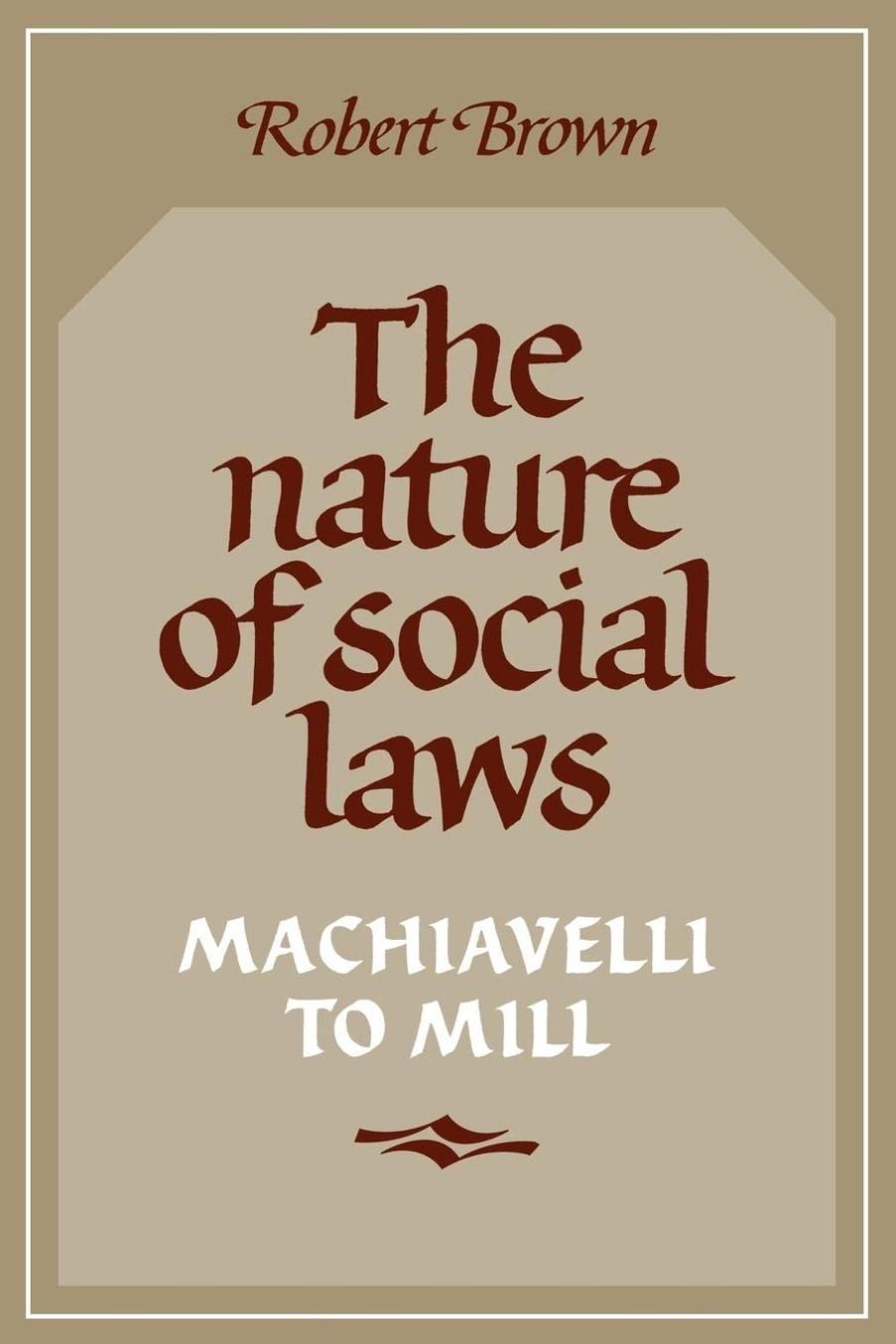
- Free Article: No
- Contents Category: Philosophy
- Review Article: Yes
- Article Title: Rule vs Law in the Social Sciences
- Article Subtitle: Rule one, law nil
- Online Only: No
- Custom Highlight Text:
Robert Brown’s interesting book makes it clear that the history of ideas is a more complex and tough-minded enterprise than popular sloganising in this area would suggest. Brown, who is Professorial Fellow in the History of Ideas unit at the Australian National University, concerned with two different conceptions of the operation of the humane ‘sciences’. On the one side is the scientistic approach espoused by those inheritors of the Enlightenment who believe that there are laws of society just as there are laws of nature, and that the aims and methods of the social scientist should be similar to those of the natural scientist.
- Book 1 Title: The Nature of Social Laws
- Book 1 Biblio: Cambridge University Press, $59.50, 270 pp
On the other side is the humanistic approach followed by those representatives of the Counter-enlightenment who deny the existence of social laws and argue that the role of the social scientist is to provide understanding through imaginative entering into the beliefs and purposes of participants in the social situation.
Brown’s aim is to describe and analyse the intellectual sources of the belief in the comparability of social and natural laws. He begins with the generalisations of sixteenth century political writers, including Macchiavelli and some interesting early economists, and ends with J. S. Mill’s views on the proper structure and methods of the social sciences. Brown’s critical analysis of Mill’s views on social laws suggests that while Mill failed to find purely social laws of a causal kind, it remains an empirical question whether we can discover what he described as ‘laws of coexistence’ which establish links between contemporaneous social factors.
The justification for finishing with Mill is that conceptual developments after Mill have added nothing to the argument as to whether social laws is exist in the same sense as physical laws. Brown’s conclusion is suitably qualified:
Given our ordinary characterisation of the social disciplines as they arose in the eighteenth century, and given our ordinary views of what constitutes a social question, there can be, as a matter of fact, no laws of historical sequence or development, no strict and pure laws of social, political or economic history. In this respect there are not, and cannot be, scientific laws of society as there are scientific laws of nature. Hence there will never be trustworthy, accurate and wide-ranging social theories comparable to that of the Newtonian mechanics.
Brown’s analyses en route are possibly more interesting than his conclusion. In particular, though his definitions are somewhat stipulative, his distinctions between social laws, rules and regularities are important. Rules are made by humans and result in social regularities which exemplify rules, or which are the intended results or the unintended effects of rules. But none of these rules or regularities are social laws where the question of human choice does not apply. These distinctions are confused in a number of writers on social laws, including Hume. The distinction between laws and rules also helps Brown to make the point that the social scientists and the humanists were pursuing different aims. While both were looking for generalisations, the humanists were concerned with the rules and conventions whereas the scientists were looking for social laws.
Objections could be raised to Brown’s limiting his main conclusion to the application of the Newtonian model of scientific laws to the social sciences. Conceptual changes in the physical sciences, in particular, and modern developments in the philosophy of science have revolutionised views of the natural sciences. Nevertheless, it is the Newtonian model which has been influential on much of the development of the social sciences and which remains an element in the more positivistically inclined social theorists today. The continuing debate between the humanistic and scientistic views of the study of society will benefit from Brown’s jargon-free critical analysis of its intellectual origins.


Comments powered by CComment